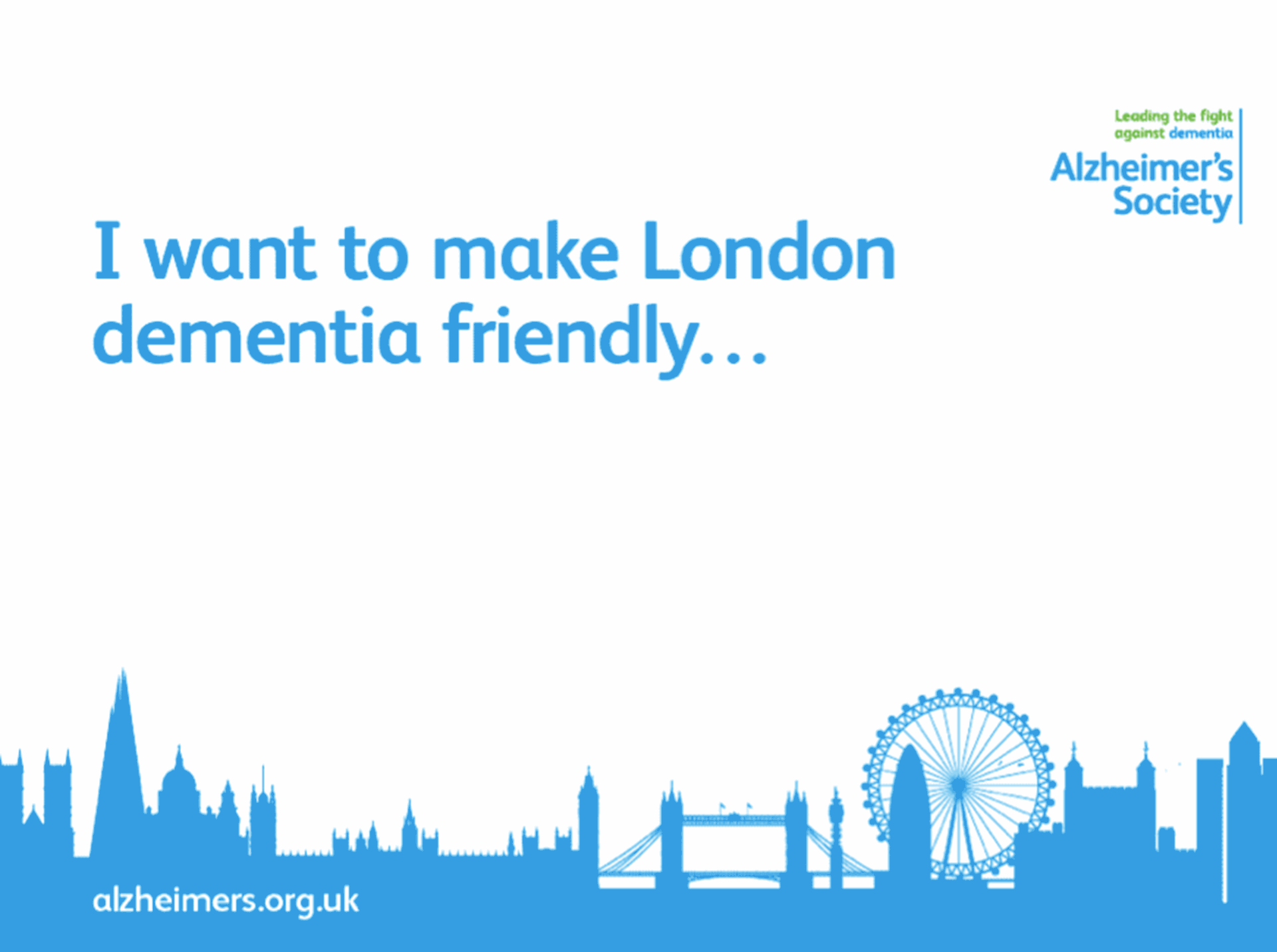Creating a Dementia Friendly London
Published: 01/04/2020
The Alzheimer’s Society is aiming to make London the first Dementia Friendly Capital City in the World by 2020.
Dementia is the biggest health and social care challenge facing London today. There are an estimated 72,000 people with dementia living in London. This number has increased from 64,600 people in 2008 and is expected to increase further. If the current trends continue there will be a 40% increase of the people living with dementia over the next 12 years, and of 156% over the next 38 years.
The Alzheimer’s Society are calling for the new London Mayor, Sadiq Khan, and the Greater London Authority to make a commitment that London will become a city where every person with dementia, no matter who they are or where they live, can live well and access the right support, at the right time, in the right way.
A key part of this is better health and social care services. A recent survey found that 90% of people affected by dementia felt that the support they received after they were diagnosed was inadequate, and that 73% of GPs think it is confusing for people with dementia and carers to navigate the health and social care system.
On average, each person in London living with dementia costs the economy £32,850 per year*. The total societal cost of dementia in London is estimated at £2.4 billion per year. This can be broken down as £430 million is spent on healthcare costs, £925 million is spent on social care costs (publicly and privately funded), £1060 million is contributed by the work of unpaid carers of people with dementia, and £10 million spent on other costs, including police costs of missing person enquiries, advocacy services and research
It is clear that the biggest cost related to dementia in London is that attributed to unpaid carers. Today is the start of Carers Week in the UK, a time to recognise, support and celebrate those people who provide vital care and support to relatives and loved ones for free. Right at Home Central London like to do all we can to help these carers including offering our free practical Moving & Handling training. We are also on hand should they need further support, someone to help if they take a well deserved holiday or simply when they need a few hours off.

The Alzheimer’s Society feels that with the right support systems in place across London, cost savings could be made. This would include increasing diagnosis rates so that people can live well with dementia, making sure that there is enough post diagnosis support in place so they do not end up in hospital when they hit crisis.
Dementia Care is one of Right at Home Central London’s specialist services. All our support workers are Dementia Friends and must undertake our market-leading training, regardless of experience, that includes dementia. Any of them going on to care for someone with dementia must also complete our full dementia training. This training includes dementia awareness, communication skills, behavioural techniques and how to tailor our high standards of care for people with dementia.
The key to our care is that we encourage all our clients to maintain their independence and supervise them doing everyday activities, only stepping in when needed.
Everyone can get involved to make London dementia friendly. No matter how big or small your contribution, it all makes a difference. In my role as a Dementia Friends Champion, I am aiming to sign up at least 100 new Dementia Friends by the end of 2016. Attending a Dementia Friend’s Information Sessions and wearing your blue badge can help increase awareness and understanding on the first step to making London a Dementia Friendly Capital City by 2020.
Show your commitment to the campaign by taking a photo of yourself with the Alzheimer’s Society dementia friendly placards and by tweeting #DementiaLDN. Placards and more information can be found at https://www.alzheimers.org.uk.
Thanks for reading
Bryan McMorrine
Managing Director, Right at Home Central London
Tel:020 3441 4160
Email: [email protected]
*Source: Alzheimer’s Society based on 2012/13 prices
